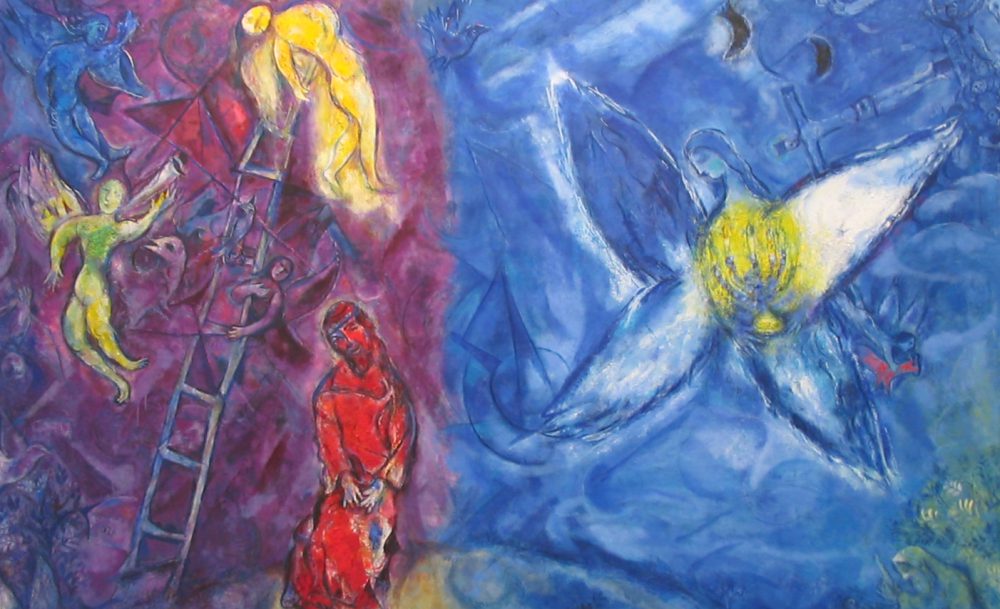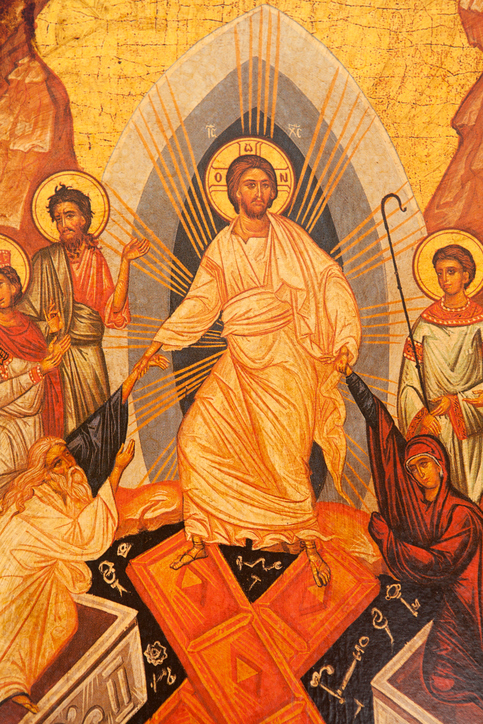You can see all the lectionary readings for the Fifth Sunday of Easter, Year C by clicking here. I have chosen to discuss the passage from the Gospel of John.
This week’s Gospel reading goes back to before Jesus’ death. We’re back in the upper room where they are having the last supper. At this point in the evening, Judas has just walked out after Jesus has predicted that he would be betrayed and handed the bread to Judas to indicate he knows it is he who will betray him. I think it was probably a tense moment and the other disciples were probably confused and frightened by the way Jesus has been talking. In some gospels he’s already talked about his body and blood and death.
Now he says, “Now the Son of Man has been glorified, and God has been glorified in him. If God has been glorified in him, God will also glorify him in himself and will glorify him at once.” When Jesus says the “Son of Man” he’s referring to himself. While researching this passage I read that some consider this his way of saying he was not just the Son of God, but also fully man. I also read that it may distinguish him as not just a Son of David (Jewish) but as coming for all mankind as he’s a Son of Man.
As for the being glorified, that’s a bit complicated. I took classes in New Testament and in Theology in college, and I’m still not sure what exactly that’s about. All I can figure is he is talking about his death and resurrection (which is what the focus of this last supper has been). Then he goes on to say that he will only be with them a little longer and he says, “Where I am going, you cannot come” (again referring to his coming death and resurrection).
At this moment it’s like he’s preparing them for that time and then comes one of my favorite scriptures, and the heart of his gospel: “I give you a new commandment, that you love one another. Just as I have loved you, you also should love one another. By this everyone will know that you are my disciples, if you have love for one another.” How true that is…and how sad that many Christians do not show that love to one another or especially to those who are different from them. It’s such a simple command, and yet can be so hard to fulfill.



